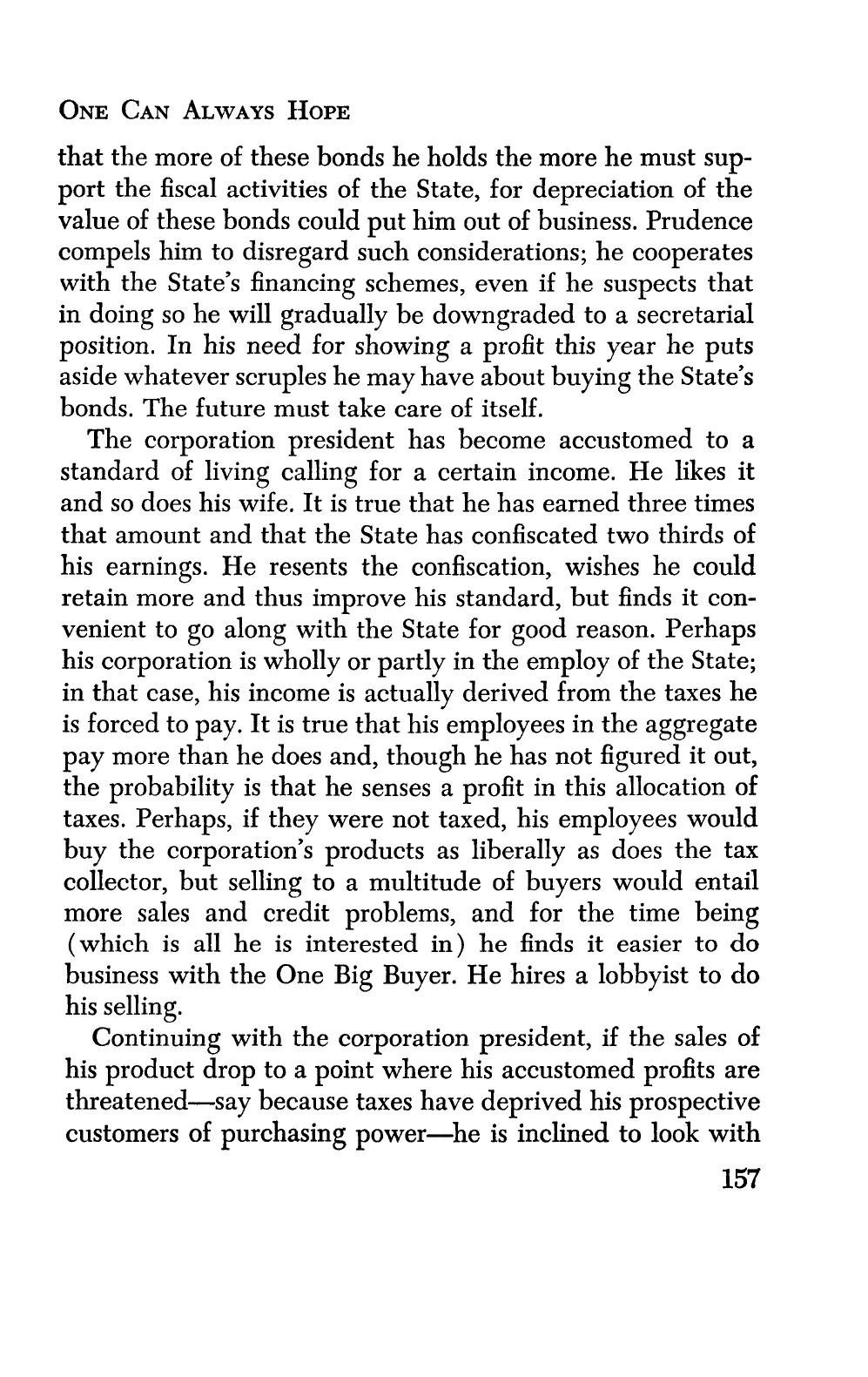One Can Always Hope
that the more of these bonds he holds the more he must support the fiscal activities of the State, for depreciation of the value of these bonds could put him out of business. Prudence compels him to disregard such considerations; he cooperates with the State's financing schemes, even if he suspects that in doing so he will gradually be downgraded to a secretarial position. In his need for showing a profit this year he puts aside whatever scruples he may have about buying the State's bonds. The future must take care of itself.
The corporation president has become accustomed to a standard of living calling for a certain income. He likes it and so does his wife. It is true that he has earned three times that amount and that the State has confiscated two thirds of his earnings. He resents the confiscation, wishes he could retain more and thus improve his standard, but finds it convenient to go along with the State for good reason. Perhaps his corporation is wholly or partly in the employ of the State; in that case, his income is actually derived from the taxes he is forced to pay. It is true that his employees in the aggregate pay more than he does and, though he has not figured it out, the probability is that he senses a profit in this allocation of taxes. Perhaps, if they were not taxed, his employees would buy the corporation's products as liberally as does the tax collector, but selling to a multitude of buyers would entail more sales and credit problems, and for the time being (which is all he is interested in) he finds it easier to do business with the One Big Buyer. He hires a lobbyist to do his selling.
Continuing with the corporation president, if the sales of his product drop to a point where his accustomed profits are threatened—say because taxes have deprived his prospective customers of purchasing power—he is inclined to look with
157
